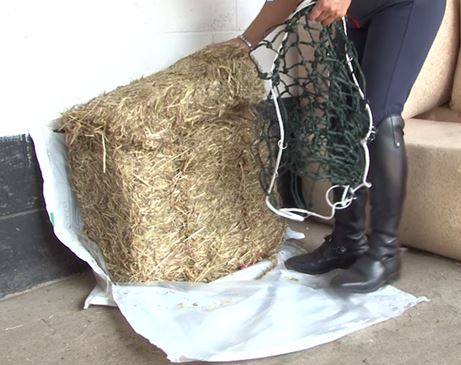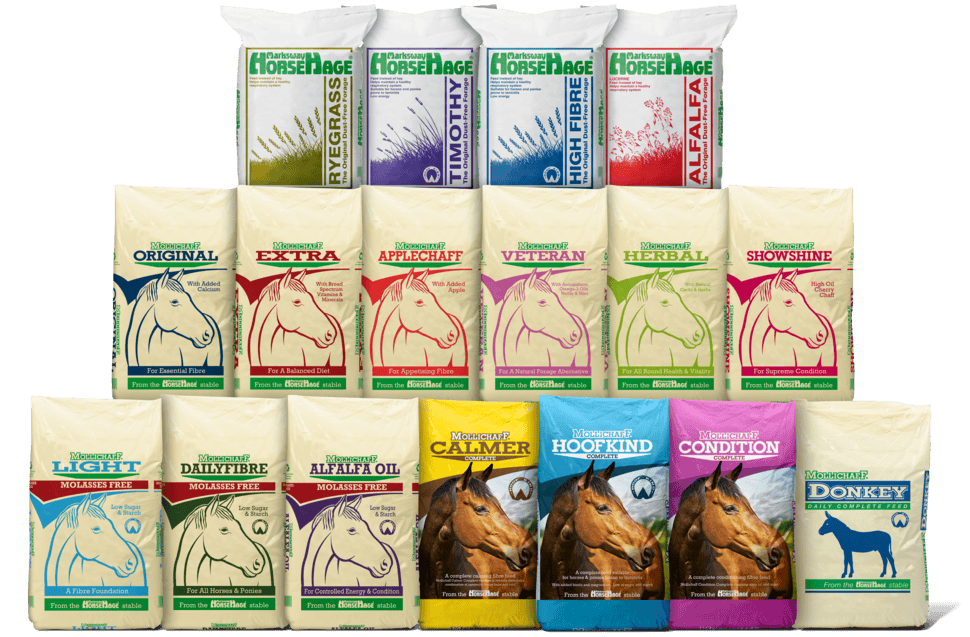
Horses have evolved to live on an almost entirely forage based diet becoming “trickle feeders” through evolutionary adaptation. Their digestive system, consisting of a small stomach and large bacteria filled hindgut, is designed to contend with an almost continuous supply of grass and high fibre forages. Providing a suitable diet that allows the horse to eat for up to 18 hours a day is not only essential for the health of the digestive system, but also for their mental and emotional wellbeing.
It is normal for horses to love to eat and most do. If your horse is eating too quickly or eating too much, it can lead to numerous problems. Consuming too much, too fast can result in horses running out of forage and being stood for long periods without anything to eat, weight gain, or even more serious issues like choking and colic.
What Is It Called When a Horse Eats Too Quickly?
When a horse eats too quickly, it is known as “bolting”. Bolting feed materials can cause choke, a potentially dangerous condition where food becomes lodged in the oesophagus. Choke can also be caused by swallowing without chewing properly or insufficient saliva resulting in large, dry feed particles becoming stuck. Dental issues that reduce chewing or dehydration can be a precursor to a lack of saliva.
Why Does My Horse Act Like It’s Starving?
If you are wondering “why is my horse so hungry all the time?”, it may have to do with natural feeding habits. Horses graze and if they cannot seek and find food, it can trigger an automatic response that signals food is scarce.
Other reasons for unusual feeding behaviour can include underlying medical conditions or behavioural issues like food aggression (which can be addressed with positive reinforcement). Feeding in a group can also influence some horses to eat quickly to avoid competition.
Alternatively, it could be a vitamin or mineral deficiency. Supplementary products, such as complete feeds and balancers, are designed to round out the diet of an average horse grazing on pasture. Each horse is different, so consult an equine nutritionist.
How Do I Slow Down My Horses Eating?
Prolonging the amount of time forage and feed takes to consume can be advantageous for many reasons. It is also essential to provide forage and feed suitable for your horses’ nutritional requirements.
- Feeding concentrates in a slow feeder bucket can help, as can adding smooth rocks to the bucket (these should be large enough so that there is no risk of your horse swallowing them)
- Include a suitable high fibre chaff with your bucket feeds will not only increase your horse’s fibre intake it will also help to fulfil your horses psychological need to chew
- Grazing muzzles can reduce the amount your horse can consume whilst still allowing them to be turned out. Grazing muzzles must be well fitted allowing the horse to drink and eat effectively. Some horses may find wearing a muzzle stressful so monitor your horse’s behaviour. Removing a muzzle and allowing free access to grazing can encourage ‘binge’ eating behaviour
- Double net forage or use a trickle net
- Dividing forage up into multiple portions and placing them in different areas can encourage foraging
- Providing part of the forage ration as straw can not only decrease the amount of calories your horse is receiving but also increase the amount of volume you are able to feed
- Use specially designed gadgets such as a hay ball or slow feeder forage bin to slow down eating rates
Every horse is different and thus will need to be treated accordingly if they are eating too quickly. If you need some advice, get in touch with our dedicated HorseHage Helpline on 01803 527274 and our expert team will be happy to help.


